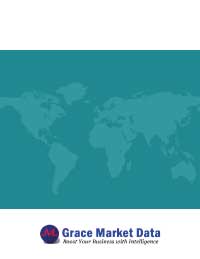Asia Pacific 3D printed wearables market will grow by 11.5% annually with a total addressable market cap of $14,776.6 million over 2023-2032, driven by the expanding demand for interestingly designed items, expanding focus on health by both the general population and customer innovation organizations increasing healthcare spending, a rising incidence of chronic diseases, and growing technology advancements in 3D printing.
Highlighted with 29 tables and 43 figures, this 106-page report “Asia Pacific 3D Printed Wearables Market 2022-2032 by Product Type (Prosthetics, Fitness Trackers, Smart Watches, Orthopedic Implants, Surgical Instruments), Material Type (Plastics & Polymers, Metals & Metal Alloys, Ceramics, Biocompatible Material), End User (Hospitals and Clinics, Pharma and Biotech Companies, Medical and Surgical Centers, Academic Institutes, Others), and Country: Trend Forecast and Growth Opportunity” is based on comprehensive research of the entire Asia Pacific 3D printed wearables market and all its sub-segments through extensively detailed classifications. Profound analysis and assessment are generated from premium primary and secondary information sources with inputs derived from industry professionals across the value chain. The report is based on studies on 2020-2022 and provides forecast from 2023 till 2032 with 2022 as the base year. (Please note: The report will be updated before delivery so that the latest historical year is the base year and the forecast covers at least 5 years over the base year.)
In-depth qualitative analyses include identification and investigation of the following aspects:
- Market Structure
- Growth Drivers
- Restraints and Challenges
- Emerging Product Trends & Market Opportunities
- Porter’s Fiver Forces
The trend and outlook of Asia Pacific market is forecast in optimistic, balanced, and conservative view by taking into account of COVID-19 and Russia-Ukraine conflict. The balanced (most likely) projection is used to quantify Asia Pacific 3D printed wearables market in every aspect of the classification from perspectives of Product Type, Material Type, End User, and Country.
Based on Product Type, the Asia Pacific market is segmented into the following sub-markets with annual revenue ($ mn) for 2022-2032 included in each section.
- Prosthetics
- Fitness Trackers
- Smart Watches
- Orthopedic Implants
- Surgical Instruments
Based on Material Type, the Asia Pacific market is segmented into the following sub-markets with annual revenue ($ mn) for 2022-2032 included in each section.
- Plastics & Polymers
- Metals & Metal Alloys
- Ceramics
- Biocompatible Material
- Other Material Types
By End User, the Asia Pacific market is segmented into the following sub-markets with annual revenue ($ mn) for 2022-2032 included in each section.
- Hospitals and Clinics
- Pharma and Biotech Companies
- Medical and Surgical Centers
- Academic Institutes
- Other End Users
Geographically, the following national/local markets are fully investigated:
- Japan
- China
- South Korea
- Australia
- India
- Rest of APAC (further segmented into Malaysia, Singapore, Indonesia, Thailand, New Zealand, Vietnam, Taiwan, and Philippines)
For each key country, detailed analysis and data for annual revenue ($ mn) are available for 2022-2032. The breakdown of national markets by Product Type, Material Type and End User over the forecast years are also included.
The report also covers current competitive scenario and the predicted trend; and profiles key vendors including market leaders and important emerging players.
Selected Key Players:
3D Systems, Inc.
Arcam AB
Biomedical Modeling Inc.
Carbon, Inc.
Cyfuse Biomedical K.K
EnvisionTEC, Inc.
EOS GMBH (Electro Optical Systems)
General Electric (GE) Co.
Koninklijke Philips N.V.
Materialise N.V.
Medtronic PLC
Omron Corporation
Prodways Group
Renishaw Plc
Stratasys Ltd.
Under Armour, Inc.
(Please note: The report will be updated before delivery so that the latest historical year is the base year and the forecast covers at least 5 years over the base year.)



